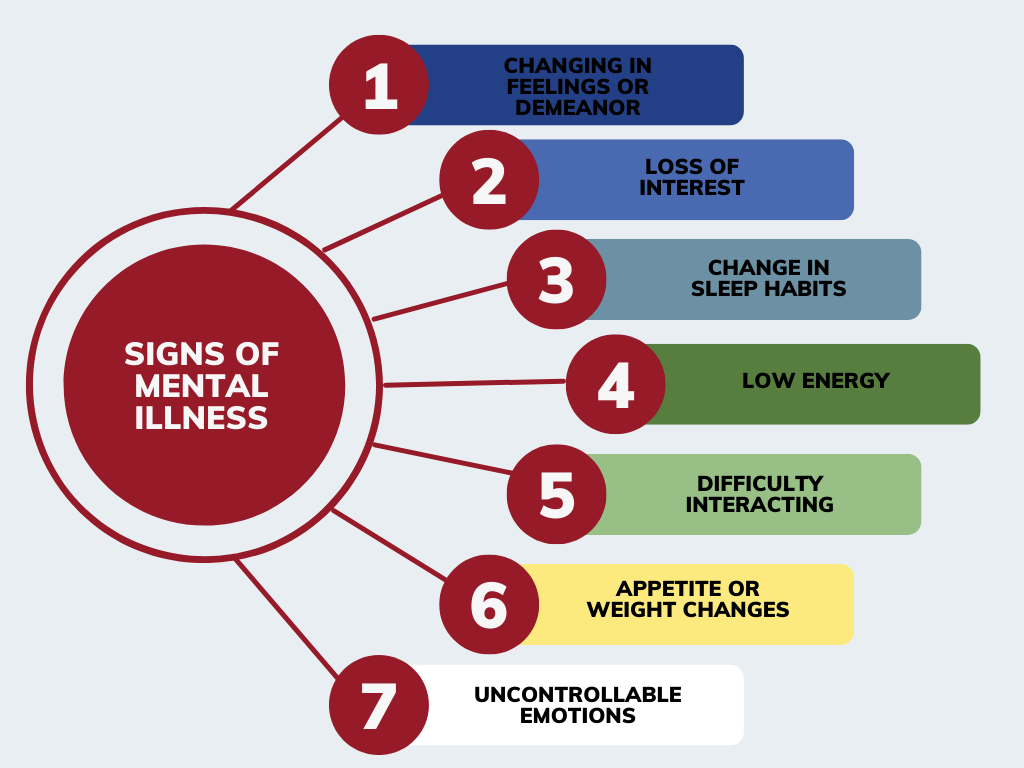Mental illness is becoming more prominent in our communities. The National Alliance of Mental Illness reports nearly 50 million Americans experience a serious mental health condition every year. That’s 1 in 5 adults. Serious mental health conditions are:
- Eating Disorders
- Bipolar Disorder
- Post-Traumatic Stress Disorder (PTSD)
- Major Depression
- Obsessive Compulsive Disorder
- Severe Anxiety Disorder

Some of you may ask “Wait, I have sadness/depression and/or anxiety sometimes. Does that mean that I have a serious mental health condition?” The answer is often, No. Someone who is struggling with a serious mental health condition has overwhelming symptoms that make it challenging to go about their day. For example, if your child were to wander away from you in the store you may experience anxiety until you find them. For someone with severe anxiety disorder, they experience this heightened emotion when doing small tasks like going to the store, driving down the street, or if they might be late to an appointment. The feeling is so overwhelming that they physically struggle to move, or breath. In some cases, they may feel physical pain, loss of appetite, and even nausea and vomiting from the anxiety.
Mental illness affects everyone differently. Here are some common signs:

Supporting yourself and your care recipient
Caring for someone with a mental illness can be challenging for both the care recipient and the caregiver. Some ways that will help bring down walls and support each other are to:
- Be supportive: It is hard to tell others when you are struggling mentally. When someone finally opens up about it, give them an open ear, a hug, and genuinely be there for them. Listen to their struggles and ask questions on ways that can help make things easier for them. People struggling with mental illness have a hard time asking for help, often because of the fear of rejection. So, even if it is a small task, step in and help them.
- Practice self care: Caregivers often get wrapped up in making sure that everyone around them is happy, healthy, and safe, that they forget to look in the mirror. Self care can take a variety of forms like getting good sleep, journaling your thoughts and feelings, and nourishing your body.
- Getting help: It is okay to say that you are struggling with being overwhelmed from caring for someone with a mental illness. A great way to help with this is to seek therapy for yourself and/or your care recipient. Sometimes, group therapy can be very helpful to breaking down walls and getting to the root cause of some of the challenges they are facing.


